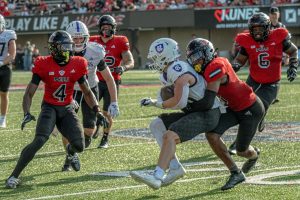NIU student found dead near tracks
By Nick Swedberg
| May 5, 2003
Anthropology professor receives grant
By Megan Rodriguez
| May 5, 2003
Senators march
By Nick Swedberg
| May 5, 2003
Shop around for buyback savings
By Bonny Beaman
| May 5, 2003
Trustees approve tuition increase, technology surcharge
By Paul L. Mikolajczyk
| May 5, 2003
Don’t pay the price of missing final exams
By Mike DeYoung
| May 5, 2003
Avoid last-minute cram sessions
By Courtney Cavanaugh
| May 5, 2003
BOT to vote on tuition increase
By Paul Mikolajczyk
| May 5, 2003
Sgt. Wickstrom to turn in his badge
By Mike DeYoung
| May 1, 2003
Rapid fire succession
By Casey Toner
| May 1, 2003
Peters: Budget put to bed
By Sarah Rejnert
| May 1, 2003
Affirmative action hangs in the balance
By LaShaunna Watkins
| May 1, 2003
TRENDING
Advertisement
Advertisement
Advertisement
Advertisement
Advertisement
Advertisement






